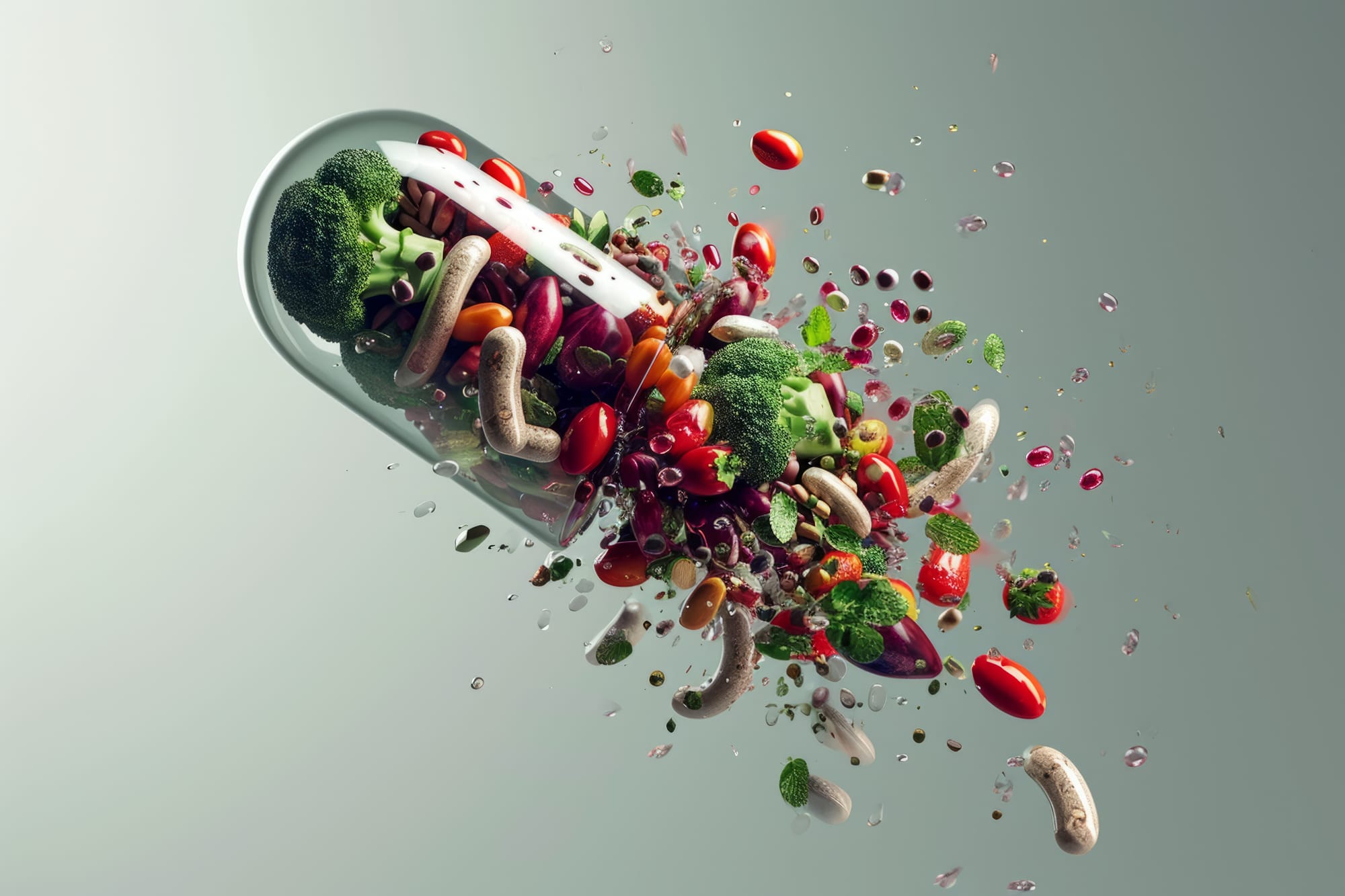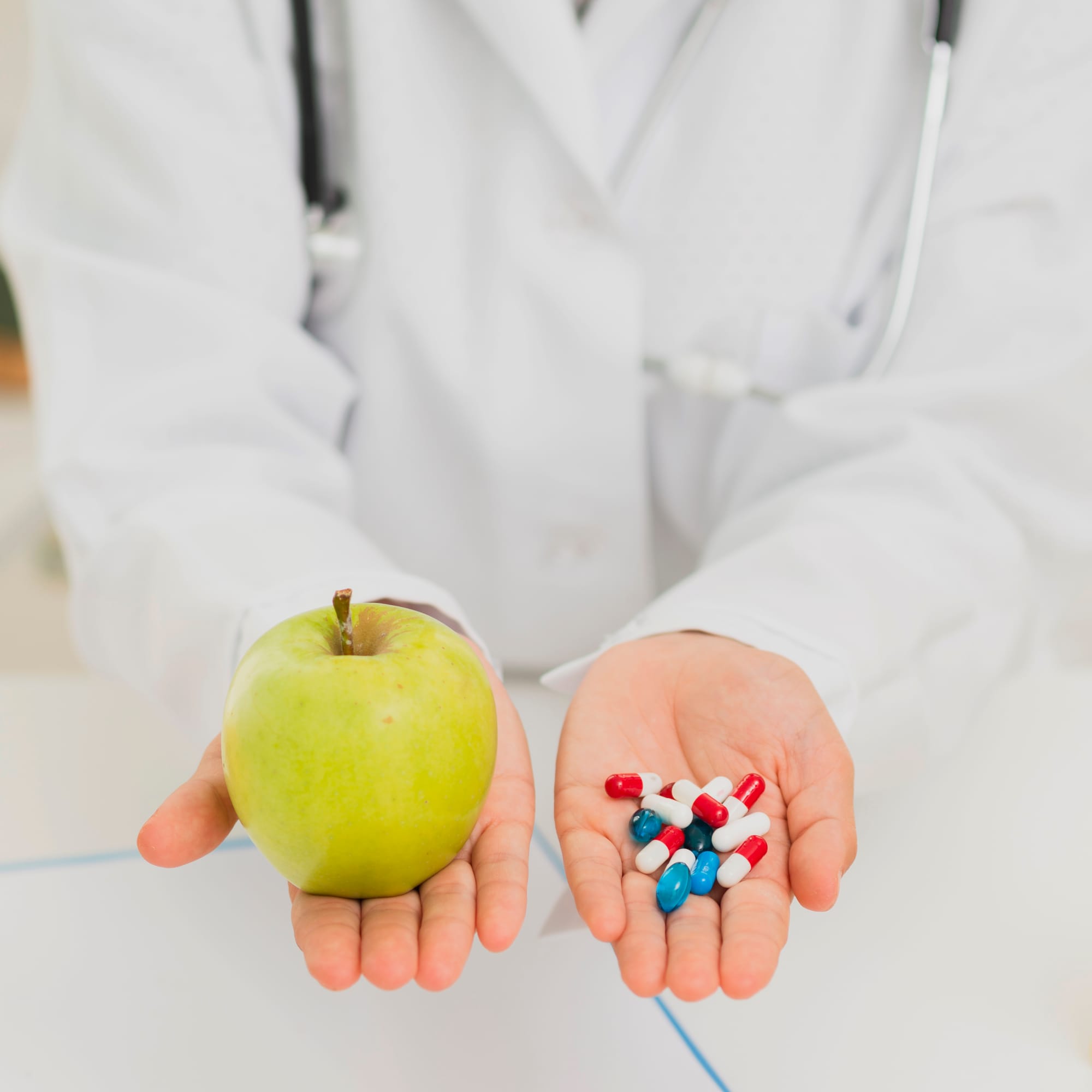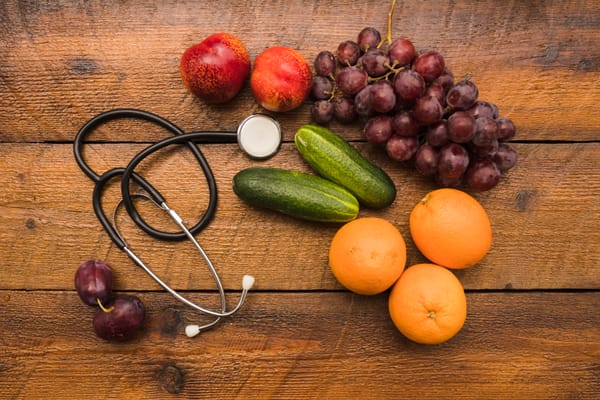The term 'food is medicine' in recent years has, for some reason, caused uproar in certain areas of the health, wellbeing and medical community.
On one hand, you have people in the holistic health space who firmly believe in the power of food and its benefits for our short and long-term health.
But on the other hand you have medical professionals who strongly believe that food is NOT medicine.
There is some nuance here that we need to unpack. Let's do that.
Firstly, what is medicine and how can it be defined?
The Oxford Reference provides the definition below that we will look at:
noun. 1: the science or practice of the diagnosis, treatment, and prevention of disease. 2: the science or practice of nonsurgical methods of treating disease.
So it's clear that medicine covers a few different areas.
The issue I see is that the medical professionals that state that food is NOT medicine are perhaps approaching things in a black-and-white manner.
They seem to be of the belief that food can NOT replace conventional medication, and that claiming that food is medicine is dangerous and misleading to people seeking solutions for their health challenges.
Something that I've heard said is 'food is not medicine, MEDICINE is medicine' – a stance that is too rigid in my opinion.
Now I will say this: in acute situations, food is absolutely not going to help.

If – God forbid – I end up in a car crash, I would like morphine to manage the pain, not a cup of blueberries.
A person living with Type 1 Diabetes absolutely needs external insulin, otherwise they risk a whole host of health complications.
Such circumstances call for the fantastic advancements that have been made in modern medicine.
However if we look at the overall declining health of society – and that over 60% of calories in countries like the UK, US, Canada and Australia are coming from ultra-processed junk foods – surely we have to accept the incredibly strong impact that our nutritional choices will have on our health outcomes?
Part of the definition of medicine sees it as the prevention of disease.
With what we know about diet and its links to poor health, adopting a nutritious diet and aiming to reduce risk of disease makes food – in my opinion – medicinal by default.
In fact there was a recent trial that showed how dietary changes helped to address irritable bowel syndrome (IBS) better than medication in a four-week trial.
A perfect example of how food can be successfully used to manage a condition.

Let me be clear: food is not and should not be considered a direct replacement for all medication that exists, and particularly the forms that – in acute circumstances – can be life-saving.
That is undeniable.
But what is also undeniable is this: the right food can be a powerful force for good.
It can be a gateway to better health, and with that ultimately the hope of a better life.
Whilst it can also bring friends and family together beautifully in social settings, the wrong kind of food consumed all-too regularly can also have devastating effects for friends and family, who may see their loved ones leave way before their time.
We should appreciate and respect the power of food as medicine, whilst also appreciating pharmaceutical interventions that save people's lives.
It's not one or the other – but to me one thing is clear: food absolutely is medicinal, and when focused on in a whole-food and nutritious way, it can and will contribute to lowering disease rates and improving health in our society.
Stay healthy,
Jeff
